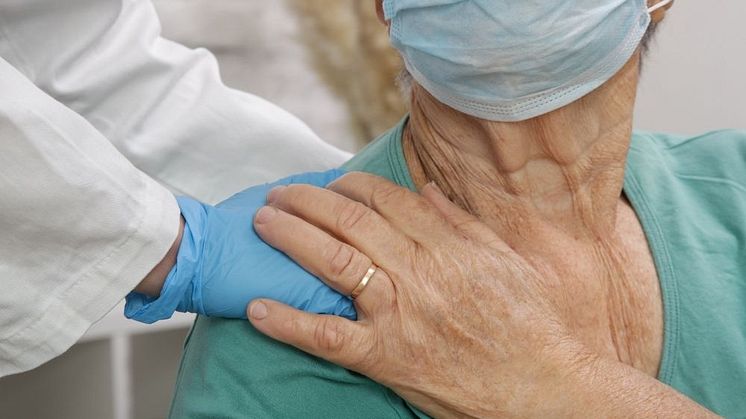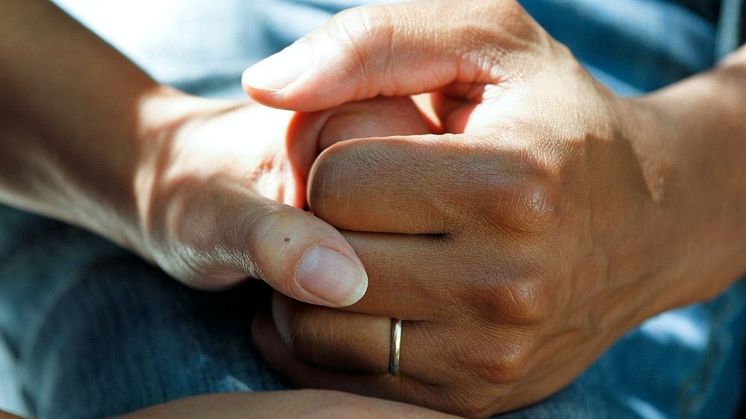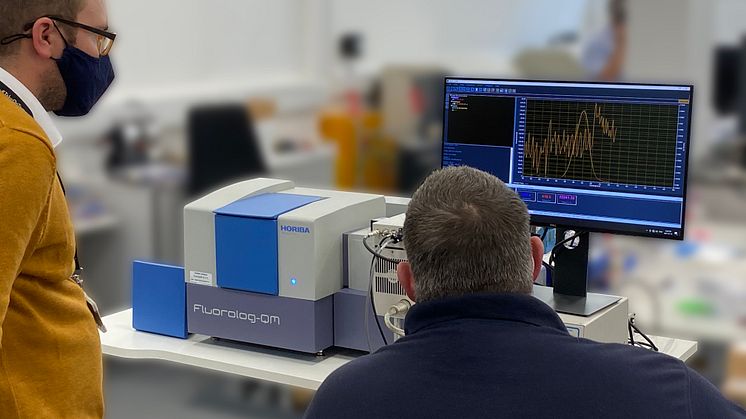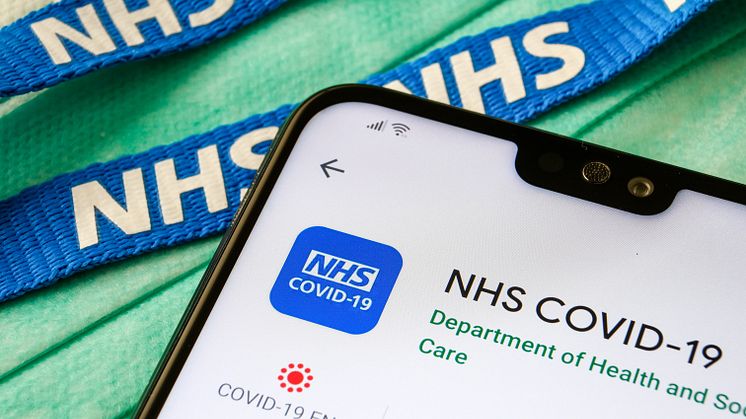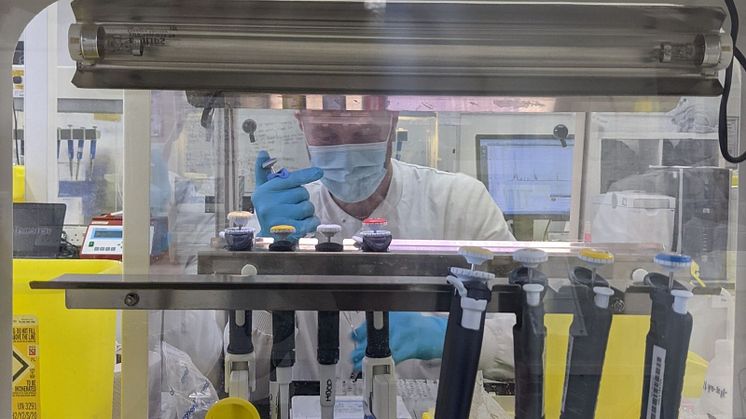
Press release -
New funding for research into remote healthcare for eating disorders during the Covid-19 pandemic and beyond
Northumbria University health and cyber psychologist Dr Dawn Branley-Bell has been awarded a Medical Research Foundation Fellowship – one of four projects supported by £1.1 million of new funding to tackle eating disorders and self-harm.
A new project led by Research Innovation Fellow Dr Dawn Branley-Bellfrom Northumbria University’s Department of Psychology will explore what we can learn about the causes, prevention and future treatment of eating disorders following the rapid transition to remote care during the Covid-19 pandemic.
Approximately 1.25 million people in the UK have an eating disorder. Recent researchby Dr Branley-Bell suggests that many individuals with eating disorders have experienced worsened symptoms during the Covid-19 pandemic, and reported concerns around the suitability of healthcare delivered remotely.
Such concerns included, for example, individuals seeing themselves more often on video calls, giving more opportunities to be self-critical of their appearance, or being asked to weigh themselves at home.
Building on her previous research, Dr Branley-Bell will now work alongside people with lived experience of eating disorders, healthcare providers, eating disorder charities, technology designers and other experts in the field to identify why symptoms worsened during the pandemic and to explore the challenges experienced with remote treatment.
The project will also look at how technology can be improved to increase the efficacy and security of remote eating disorder treatment. Dr Branley-Bell will work closely with people with lived experiences of eating disorders to ultimately co-design new technology and recommendations for how it should be used going forward.
Commenting on her Fellowship, Dr Dawn Branley-Bell said: “Even after Covid-19 is under control, there remains many other situations which prevent individuals from accessing face-to-face treatment. Remote care can ensure access to vital help and support. By learning from experiences during the pandemic, this research will help to improve our understanding of eating disorders and inform future healthcare, technology design, guidance and policy.”
Dr Angela Hind, Chief Executive at the Medical Research Foundation, said: “Before the Covid-19 pandemic hit, eating disorders were already affecting increasing numbers of young people. Today the need for new research insight is even greater, as it’s been an immensely challenging year for many young people with these devastating conditions.
“We’re excited to see what Dr Branley-Bell’s project uncovers about the impact of remote healthcare for eating disorders. These findings will be crucial as we begin to emerge from the pandemic, and will also help to guide treatment of eating disorders long into the future.”
The Medical Research Foundation scheme provides postdoctoral researchers the opportunity to start independent, internationally competitive research careers in the field of eating disorders and self-harm.
This research project, and the Medical Research Foundation’s previous investments in eating disorders and self-harm research, have been made possible by a gift in Will from Catherine Evans.
Help the Medical Research Foundation continue to support much-needed research into eating disorders and self-harm, by joining their team of walkers for the Thames Bridges Trek on 11 September 2021. Find out more on their website.
If you’re worried about your own or someone else’s health, you can contact Beat, the UK’s eating disorder charity, on 0808 801 0677 or beateatingdisorders.org.uk
- Ends –
Notes to editors:
Support for the project has been offered by the following partners:
- Beat, UK’s Largest Eating Disorder Charity. As the UK’s largest registered ED charity, Beat provides help to individuals with EDs and their family and friends, 365 days per year - including via online resources. Beat also campaign to increase knowledge among healthcare and other professionals, and for better funding for high- quality treatment.
- NIWE Eating Distress Service, Registered Charity and Company Limited by Guarantee. NIWE is the only Eating Disorder charity serving the North East of England. We provide a range of help and resources for those affected by EDs and their families and friends. We also provide ED awareness training for young people, professionals and carers. All services are available online.
- Dr Catherine Talbot, Lecturer in Psychology, Bournemouth University. Dr Talbot is a cyberpsychologist, specialising in social media, health, and qualitative methods. She has expertise in conducting and analysing interviews, focus groups, and workshops with a range of groups, including people with EDs. Catherine is passionate about public engagement work, having organised an art exhibition based on her work with people with EDs – for which she was shortlisted for Elsevier’s Researchers’ Choice Science Communication Award. Dr Talbot is a committee member of the British Psychological Society’s Cyberpsychology Section. Dr Branley-Bell worked with Dr Talbot on the previous eating disorders research cited in this release.
- Virgo Hope, Author, Mental Health Campaigner & ED Ambassador. Virgo is a widely recognised ED ambassador, published author, mental health campaigner, Research Champion for the National Centre for Mental Health (NCMH) and founder of the #DumpTheScales campaign. She is often featured on mainstream international media.
- Lizzie Vass, ED Ambassador. Lizzie is a recognised Beat ambassador and a lived experience advisor who dedicates her time to helping deliver ED support, and supporting research to improve the lives of those with EDs.
- Red Hat, International Open Source Software Company Internationally renowned software company, Red Hat, believe in open source as a way of helping communities develop better software by including everyone in the development of projects. They are keen to promote software that is inclusive and helps members of society.
- FHJ Institute of Internet Technologies and Applications, Styria. The FHJ Institute are experts in cybersecurity, privacy, data protection and e-Health which promote working with multidisciplinary teams to transfer their expert knowledge to real world applications to help society.
Topics
Categories
Northumbria is a research-rich, business-focused, professional university with a global reputation for academic excellence. Find out more about us at www.northumbria.ac.uk --- Please contact our Media and Communications team at media.communications@northumbria.ac.uk with any media enquiries or interview requests ---







